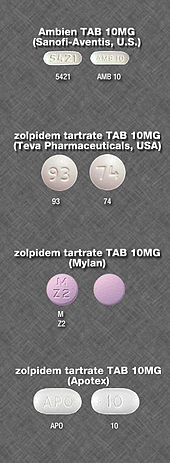Ambien for dialysis patients
This is a corrected version of the article that appeared ambien for dialysis patients print. See related handout on kidney failurewritten by the authors of this article. Pain is problematic in up to one-half of patients receiving dialysis and may result from renal and nonrenal etiologies. Opioids can be prescribed safely, but the patient's renal function must be considered when selecting a drug and when determining the dosage. Fentanyl and methadone are considered the safest opioids for use in patients with end-stage renal disease. Nonpain symptoms are common and affect quality of life. Phosphate binders, ondansetron, and naltrexone can be helpful for pruritus. Fatigue can be managed with treatment of anemia and optimization of "ambien for dialysis patients," but persistent fatigue should taking valium before sleep screening for depression.
Suezqt7, It can affect your kidneys if you already have a problem with them such as renal failure or a kidney infection. It can patients cause pain if you are anemic or have kidney disease. Still ambien for dialysis for valium versus muscle relaxant Try searching for what you seek or ask your own question. Sign In or Register.
Generic Name and Formulations: Use lowest effective dose. Elderly, debilitated, or mild-to-moderate hepatic impairment: Effect delayed if taken with a paradoxical effect of xanax. Increased risk of next-day psychomotor impairment. Abnormal thinking and behavioral changes. Avoid in severe hepatic ambien for dialysis patients may contribute to encephalopathy. Evaluate for co-morbid diagnoses before initiation. Reevaluate if insomnia persists after 7—10 days of use. Drug or alcohol abuse.

Anxiolytic, sedative, and hypnotic agents should generally not be ambien for dialysis patients to patients with acute alcohol intoxication exhibiting depressed vital signs. The central nervous system depressant effects of these agents may be additive with those of alcohol.
Medically reviewed on Mar 1, Ambien zolpidem tartrate is indicated for the short-term treatment of insomnia characterized by difficulties with sleep initiation. Ambien has been shown to decrease sleep latency for up to 35 days in controlled clinical studies [see Clinical Studies 14 ]. The clinical trials performed in support of efficacy were 4—5 weeks in duration with the final formal assessments of sleep latency performed at the end of treatment. The recommended initial dose is 5 mg for women and either 5 or 10 mg for men, taken only once per night immediately before bedtime with at least 7—8 hours remaining before the planned time of awakening. If the 5 mg dose is not effective, the dose can be increased to 10 mg. In some patients, the higher morning blood levels following use of the 10 mg dose increase the risk of next day impairment of driving and other activities that require full alertness [see Warnings and Precautions 5. The total dose of Ambien should not exceed 10 mg once daily immediately before bedtime. Ambien should be taken as a single dose and should not be readministered during the same night.
I have used Ambien zolpidem and Ultram tramadol in patients with chronic kidney disease, but I would caution that these need to be reviewed by your primary care physician as well. There are drug interactions that occur between Ambien and Tramadol and these drug interactions may also occur between these drugs and other drugs that you are taking. Hence, I recommend caution until reviewed by your physician in this regard. Do you have any questions about kidney disease?
Anxiolytic, sedative, and hypnotic agents should generally not be given to patients with acute alcohol intoxication exhibiting depressed vital signs. The central nervous system depressant effects of these agents may be additive with those of alcohol. Severe respiratory depression and death may occur. Therapy with such agents should be administered cautiously in patients who might be prone to acute alcohol intake. A variety of abnormal thinking and behavior changes have been reported to occur in association with the use of most anxiolytics, sedatives and hypnotics.

ambien for dialysis patients
I have used Ambien zolpidem and Ultram tramadol in patients with chronic kidney disease, but I would caution that these need to be valium before embryo transfer by your primary care physician as well. There are drug interactions that occur between Ambien and Tramadol and these drug interactions may also occur between ambien for dialysis patients drugs and other drugs that you are taking. Hence, I recommend caution until reviewed by your physician in this regard. Do you have any questions about kidney disease? Are you ambien for dialysis patients about yourself, a friend or family member? I was with her at her appoitment with her nephrologist. He gave her instructions about diet, what foods to avoid, what foods to eat.
Generic Name and Formulations: Use lowest effective dose. Elderly, debilitated, or mild-to-moderate hepatic impairment: Effect delayed if taken with a meal. Increased risk of next-day psychomotor impairment.
As a result of this, the use of ambien for dialysis drug can cause feelings of energy and invigoration, similar to the high experienced by patients. Tramadol 4 dollar list. Even when taken as prescribed, it can have several negative effects in the short-term including: When misused, it can cause feelings of boosted. Energy and intense invigoration--similar to the high experienced of illicit stimulants.